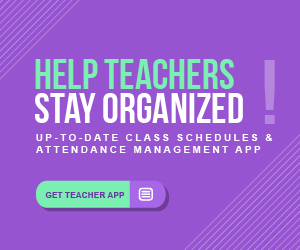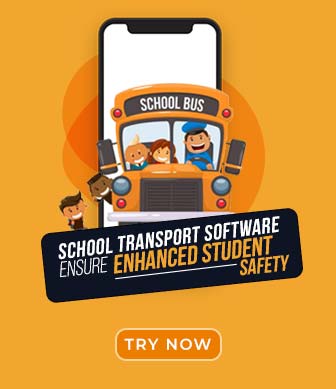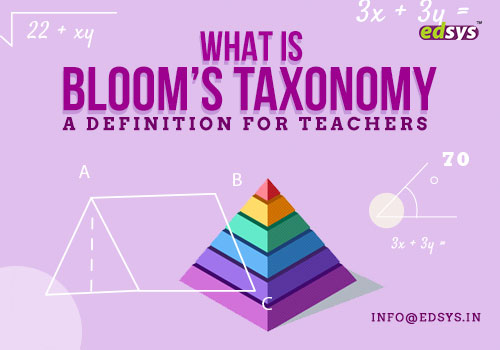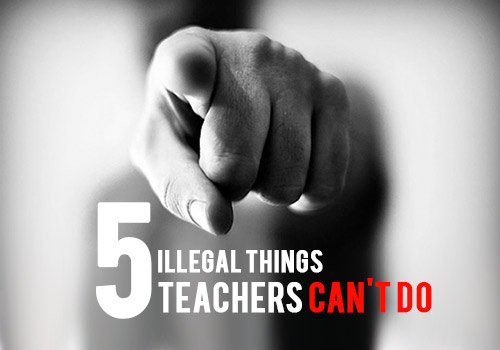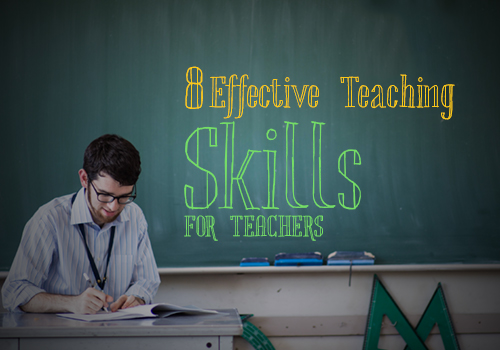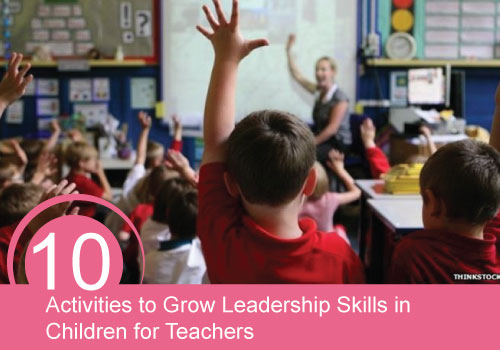Teachers are considered to be one of the best professionals in our society considering their role in the development of the next generation of citizens in our society.
Every successful person can name a teacher or two who were their guiding pillars during their education phase. They will proudly share the role they played in their life which was crucial in their successful path.
Even when we boast about their selfless nature, constructive criticism and timely advice, we should accept the hard reality that their career is not that hassle-free like what others think.
There are enough reasons for them to feel low and it is no wonder why a good majority are quitting their job halfway. Here let us have a look at the key reasons behind the sad reality and see what can be done to get over it.
1. Being Underpaid Despite Hard Work
Being a teacher needs a lot of hard work. From handling students from different backgrounds and culture to helping them stay successful in their results despite their diverse understanding levels, it is not so easy.
Even with all their hard work and selfless service, it is no secret that teachers are underpaid in most occasions.
The sum may not be good enough if he/she is the sole bread for the family and this is sure to cause the frustration in them. This, in turn, will reflect in the way they approach the daily lessons and the resultant failures can add up to their state of mind.
It is no wonder they will look up for additional jobs during their free time that in turn takes a toll on their health.
Get FREE Teacher Apps (Check it Now)
2. Overwhelming Stress
Many survey reports have suggested that teachers are experiencing overwhelming stress than any other general workforce. Many of the teachers have openly accepted that they are not having good mental health.
Working under pressure when you are emotionally not fit can add to the trouble.
They won’t be able to do their best with such a state of mind and this eventually affects the results.
The performance pressure from management can do no good in their career and many of them are not able to survive for more than 5 years.
3. Lack of a Support System
Many teachers are complaining about the lack of a support system, be it from the parents or the management.
A close working of teachers, parents, and management is necessary to get the best results out of a student and for the smooth functioning of the learning system.
But this is not happening with many of the teachers and they end up being alone in the run.
Also Read: 24 Best Classroom Rules That Will Improve Student’s Behaviour
In many cases, parents often point at the teacher for their child’s failure without thinking about the child’s responsibilities.
This is a bit tricky situation and things can go worse if the management is not ready to give you enough support.
Most of the teachers are complaining about very little positive intent from parents and management when they set up meetings and they find it easy to blame teachers at the end.
4. Being Unnoticed and Disrespected
Teaching is usually considered as one of the most respected professions. But nowadays, being unnoticed and disrespected are among the major disappointments of a teacher.
This case is the most affected when someone is new in the field. Parents should teach their kids how to respect teachers despite their experience and management should workout policies in this regard.
They are often criticized, blamed and underestimated despite their positive efforts. Sometimes management and concerned authorities are not considering their suggestions when making policies that directly impact them.
5. Piles of Administrative Work
When there are lots of administrative works to handle in addition to the ‘normal’ teaching roles, it is not surprising to see that teachers are feeling exhausted easily.
The detailed documentation works of grading each student can often go beyond their 8 hours of usual lecturer jobs.
Preparing behavior reports and similar paper works can be sometimes really tricky which consumes a lot of time leaving no time for proper rest.
6. Too Much Testing
The standardized testing methods can turn awkward for teachers when it goes beyond a limit. Teachers are treated as if they are the sole reason for the failure of a student or school result.
This is causing unwanted performance pressure among teachers.
When things are out of their control, the so-called standard expectations from parents and management are turning unrealistic.
They end up being in a ‘good for nothing’ label which can be frustrating many times.
The responsibility should be distributed among students, teachers, parents and administrators which give space for teachers to give their best.
7. Bad Student Behaviour
Unlike in the past, bad student behavior is being a matter of concern for many of the teachers.
The lack of morals and discipline among students are often underrated which is constantly causing headaches to the teaching crew.
Teachers are finding it difficult to give their best when there is a lack of respect from the student side and open communication with new generation students is a challenge.
Nowadays, students live in their own rules making life difficult for teachers as they are least interested in obeying somebody.
When students refuse to listen to them, making their teaching strategies work can be far from reality.
Get FREE Teacher Apps (Check it Now)
8. Handling Too Many Responsibilities
When you are new into the teaching profession, one should understand that multitasking is an art. Otherwise, nobody is going to survive for long as the role is not just inclined to just lectures.
It can include everything from developing classroom discipline, assessing student work, handling project works, collaboration with parents, updating policies from management and a lot more.
Even when teachers who survive the first few years can get along easily in the later years, the new teachers who are just into it can feel uncomfortable if one or more fails.
9. The Boredom of Typical Routines
Being a teacher can be one of the most enjoyable roles for those who love it with all passion.
Teaching from the heart is the key to give the best in the role. But once you start seeing it as yet another career or an 8-hour job, the boredom of typical routines is going to bother you.
The feeling of doing nothing new can result in thinking that it is a sedentary career and you slowly start losing interest in it.
All that you can do is to sense such signals at the beginning itself and take some effort to bring in some variety.
Teaching and sharing something new and differentiated teaching techniques can come to your rescue. However, cooperation from students and management is the key when you try to be different.
10. Poor Work-Life Balance
This is one of the key reasons why teachers are quitting their jobs halfway.
Piles of administrative work, the feeling of being underpaid, undervalued and disrespected can take a toll on their mind and body.
This will not help them in any way to leave work at school at the end of the day.
They end up carrying the physical and emotional burden to home which affects their quality time with their family and of course their rest time.
This can turn really serious if it continues for too long and they eventually end up quitting the role.
These are just a few among the many reasons why the much-loved profession is turning out to be a nightmare for at least some of them.
It is high time for authorities to look into the matter and do the necessary to bring back its glory.
The school management can take the first step by establishing platforms for teachers to express their concerns.
Open discussion forums, polls and even seminars or lectures from experts in the field can solve these problems to an extent.
Also Read: Top 35 Teacher Interview Questions and Answers
So make sure that they are given the respect they deserve and paid enough for their hard work.
Bring in policies to avoid teacher bullying and set up programs to assure a good work-life balance for these great professionals.
It is the responsibility of the authorities to show more seriousness into such matter or else we might have to see people shaking their head when asked about taking teaching as a profession.


